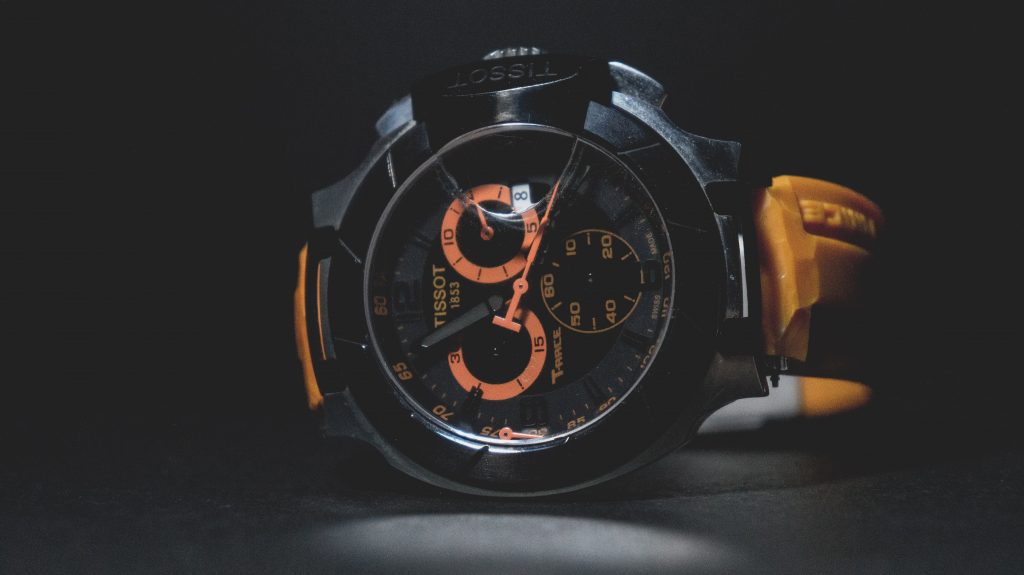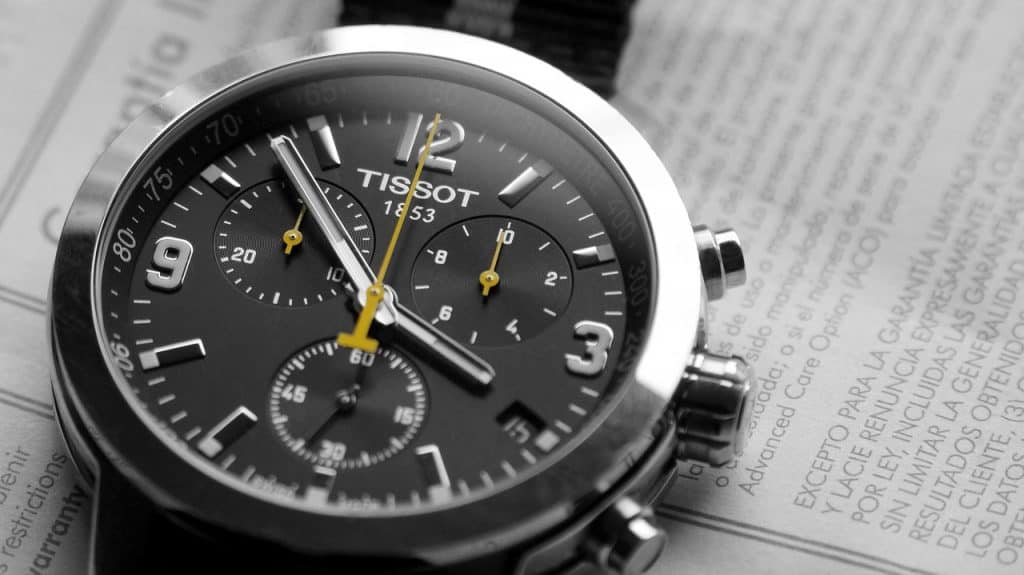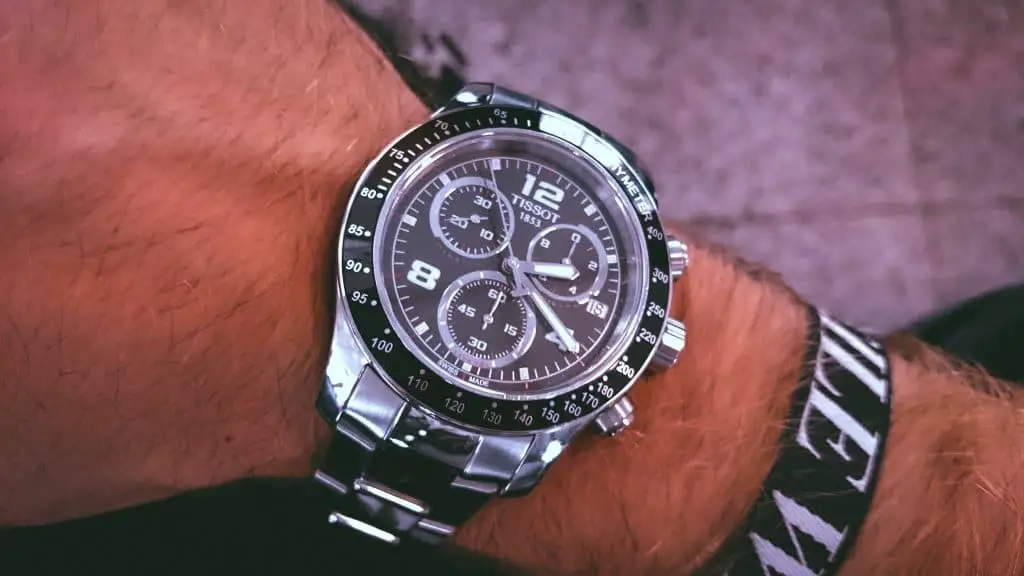Many expensive luxury watches are able to retain their value or sometimes even increase it. But what is the case for Tissot watches? Do they hold their value?
Tissot watches typically don’t hold their value too well. Tissot watches are produced on a large scale, which means there’s not much exclusivity, the main driving factor behind watches holding or increasing their value. Watches typically decrease in value for the first few years, stabilizing after that.
Even though Tissot watches don’t hold their value too well, that shouldn’t deter you from buying one. In this article, we’ll discuss common reasons as to why Tissot watches don’t hold their value, and why there are always exceptions to this rule!

Table of Contents
Do Tissot Watches Hold Their Value?
Tissot watches really aren’t the best at holding their value, and there are a few reasons for that. The most prominent factors have to do with the exclusivity of the watch and the brand that is selling the watch.
Watches that hold their value are typically from respected luxury brands. That’s not to say that Tissot isn’t a reputable luxury watch brand, but it just isn’t on the same level as the likes of Rolex, Patek Philippe, or Audemars Piguet.
Namesake plays a significant role when it comes to retaining value. Brand names like Rolex have become synonymous with success and luxury. And products from brands that express such a feeling are always sought after.
Tissot is mainly known for offering affordable luxury watches. Yes, they do offer Swiss luxury, but the Tissot name just doesn’t carry the same prestige that the other brands do.
Aside from the brand name not carrying the same weight as some of the other Swiss luxury brands, Tissot watches aren’t as exclusive either.
Truth is, watches that range on the more affordable scale (read: watches that cost less than about $1000) typically don’t hold their value all that well. And aside from the brand’s name, a significant contributing factor for that is that more affordable watches just aren’t that rare or exclusive.

The only exception here is when you have a limited edition watch. Otherwise, these affordable watches are readily available. And at that point, it makes more sense for someone just to buy the watch brand new.
Another thing to note with watches that have been around for a long time is that they will show signs of wear—a scratch here, a small dent there. Now, if you have a rare and exclusive watch that isn’t really found elsewhere, these scratches and dents are part of the deal, but if the same watch is displayed brand new in a shop, it makes more sense to go for the new one.
Tissot does offer some limited edition watches, such as the Tissot T-Race MotoGP line. As with all limited edition watches, chances are that they will increase in value over time.
Is A Tissot Watch A Good Investment?
A Tissot is not a good investment if you intend to make money on it, but it is a fantastic investment if you’re looking for a durable and qualitative watch that can serve as an heirloom. Tissot watches don’t really appreciate in value, but they are some of the finest watches, available at a price where you get the best value for your money.
As we discussed earlier, Tissot watches aren’t all that great at holding their value, nevertheless actually appreciating. With that in mind, it’s safe to say that most Tissot watches, except limited editions, will not be a good investment.
In the first three years, a watch typically depreciates by 10-20% a year, so after only three years, your watch will be worth about half of what you paid for it.
This rule goes for most watches, but there are, of course, some watch brands/models that instantly appreciate the moment you buy them, such as watches with multiple year-long waiting lists. But in the case of Tissot, most watches are produced in large enough numbers to not make them that exclusive.
There is always the chance that a certain watch model suddenly appreciates in value over time, whether it’s due to the discontinuation of that model or a surge in demand. But at that point, you’re really just guessing and hoping your watch model is the one that wins the lottery.

But buying a Tissot watch as an investment for yourself, not with the intent of selling it off at a higher price, is a fantastic idea. Tissot watches, although pricey, offer just about the best value for your money.
I’ve written an extensive article on why Tissot watches offer such great value for your money, which you can find by following this link, but in short, they offer Swiss luxury watches at the most affordable prices.
If you’re looking for a quality watch that you can one day pass on to your children as an heirloom, a Tissot is a fantastic investment. They are sturdy, reliable, and with proper care and servicing, they will last a lifetime.
Is Tissot Considered A Luxury Watch Brand?
Tissot is not actually considered to be a luxury watch brand. Instead, it’s seen as an entry-level luxury watch brand that offers superb watches at more affordable prices. Tissot watches are mass-produced, which takes away exclusivity. They do contain an in-house movement, though, and are made with exotic materials.
The question of whether or not Tissot is a luxury watch brand is slightly debated. Some people think of Tissot as a luxury brand, while others think it just barely misses out on the qualifications.
Looking at the hierarchy of the Swatch Group brands, Tissot sits somewhere in the middle; the so-called ‘middle range’. This is slightly behind the likes of Longines, which sits in the high range.
A key component to whether or not a watch brand makes luxury watches is the movement used. A luxury watch brand has to contain a movement that was made in-house. And for Tissot, it’s a bit of a grey area.
Tissot does produce their own movement, but it’s based on a popular movement made by ETA, the largest movement-manufacturing company.
Fact is, however, that ETA and Tissot are both owned by the same company, The Swatch Group. So even if ETA has had their hand in creating the Tissot movement, it would still technically be in-house.
Besides the movement, luxury watch brands aren’t shy of using exotic materials such as gold and diamonds. And although Tissot offers these exotic materials in lesser quantities than other luxury watch brands, they do certainly offer models with these exotic materials.
18K gold is the standard gold used for Tissot watches, and some models include diamonds in the design.
Even though it’s a bit of a grey area, we feel that Tissot does offer Swiss luxury watches, but only at the entry-level and at the most affordable prices.
